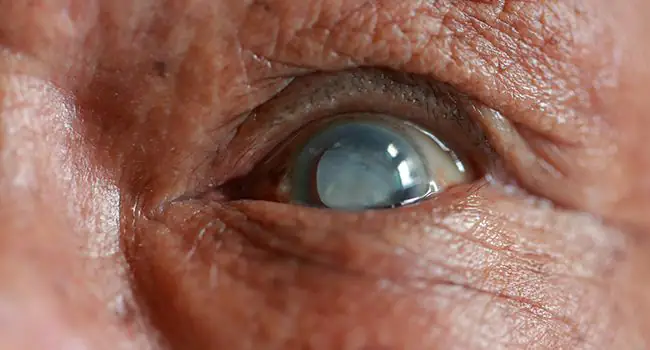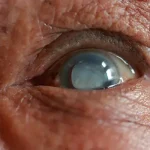Thinking of undergoing a cataract surgery? Here’s all the information you need
In the field of ophthalmology, a cataract surgery is defined as a procedure that is undertaken by eye surgeons to replace the cloudy and opaque crystalline lens of the eyes with an artificial clear lens which is known as an intraocular lens. It is also referred to as lens replacement surgery and is undertaken with an aim to restore vision.
What is a cataract?
A cataract is an eye ailment that occurs mainly because of ageing. Other factors that can be a cause of cataract include overexposure to UV rays, prolonged usage of steroids, and regular usage of drugs. While it can also be injury-induced in certain conditions, there is enough evidence to show that diabetic people are more likely to develop a cataract vis a vis other people. Since this eye ailment can neither be cured with medications nor corrected with glasses ophthalmologists always recommend undergoing a surgery for this.
What is cataract surgery?
Cataract surgery involves the removal of the cataract from the eye of the patient using an advanced laser-assisted process. It is an outpatient procedure wherein patients are not required to stay in the hospital after the surgery. It is one of the most commonly performed eye surgeries that is safe to perform and takes very less time.
Are you planning to go for cataract surgery?
If you are planning to undergo a cataract surgery, it is advisable for you to ponder upon a few basic questions such as:
- Can I see clearly and safely while doing my routine job?
- Can I drive?
- Am I facing problems while reading a book or watching television?
- Is it difficult for me to cook, shop, climb stairs or take medications?
- Is vision problem affecting my level of independence?
- Is bright light making it more difficult for me to see objects?
Risks
Complications after cataract surgery are rare and can be treated successfully. However, below we have listed a few risks like:
- Inflammation
- Infection
- Bleeding
- Swelling
It should be noted here that the risk of developing any sort of complications is higher in the case of people who are already suffering from another eye disease, are suffering from any severe medical condition, or when the cataract gets very hard or mature. We therefore recommend people to undergo evaluation and treatment of other eye problems.
How to prepare for cataract surgery?
Dietary precautions
An ophthalmologist may instruct patients to refrain from eating anything solid or taking any liquids six hours before the surgery. Besides this, patients can also be advised to avoid taking any medication that could increase the chances of bleeding during the procedure.
Other precautions
Usually patients can go home on the same day after the surgery. However we advise people to arrange for a convenient travel back home. Eye specialists also suggest patients to arrange for help back home because a cataract surgery can limit the routine activities.
What to expect before the procedure?
Ophthalmologists usually perform a painless test a week before the surgery to determine the appropriate type of intraocular lens that needs to be implanted. An intraocular lens helps improve vision by focusing light on the back of the eye and are generally made of acrylic or silicone. Some are capable of blocking ultraviolet light and are rigid plastic in nature. As they are implanted through an incision, we advise people to discuss the benefits and risks associated with types of intraocular lenses with an eye surgeon beforehand.
During the procedure
The eye pupil is first dilated by using eye drops. After this, local anaesthesia is administered to numb the eye area. A few surgical methods that are used include:
Ultrasound probe to break up the lens for removal
This procedure is termed as phacoemulsification in the field of ophthalmology and requires an eye surgeon to make a tiny eye incision in the front of the cornea. Once an incision is made, a needle-thin probe is inserted into the lens substance where the cataract has developed. After this, a probe is used for transmitting the ultrasound waves and breaking and emulsifying the cataract. The last step involves suctioning out the fragments and leaving the lens capsule intact to serve as a place for the artificial lens to rest on.
Making an incision in the eye and removing the lens
Medically this procedure is termed as extracapsular cataract extraction and is used less frequently in comparison to phacoemulsification. In this procedure, an eye specialist creates a larger incision than that used for phacoemulsification and uses surgical tools to remove the anterior capsule of the lens and the cloudy lens that comprises the cataract. Ophthalmologists usually recommend going for this procedure in cases where people are already suffering from certain eye complications.
After the procedure
Immediately after the procedure, patients are administered eye drops that are recommended to be used for a few weeks after the surgery. Patients are also advised to avoid any activity that can prove to be physically strenuous. Besides this, eye specialists advice patients to protect their eyes from any infection-causing elements and dust along with protecting them while taking a shower.
Thinking of a cataract surgery but have many questions in mind?
Team Center for Sight is always available to answer your queries pertaining to cataract surgery and provides the best experience. We are adept in performing Microincision Cataract Surgery (MICS), Phacoemulsification and Femto laser-assisted cataract surgery. So, move beyond uncertainties and begin your healing journey with us today because we believe that every eye deserves the best.
Article: Cataract surgery – Things to Keep in Mind
Author: CFS Editorial Team | July 17 2020 | UPDATED 4:35 IST
*The views expressed here are solely those of the author in his private capacity and do not in any way represent the views of Centre for Sight.







